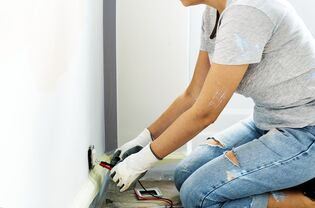
November 11 - International Energy Saving Day. This holiday is very young, it has been celebrated since 2008, which is understandable: humanity has never had such an amount of equipment that requires a refill of electricity. Why you need to save electricity, how to do it right and, more importantly, how not to do it - the article will say.
Why you need to save energy
Since childhood, we experience the demands for energy savings as an attempt to save personal finances. And now, when many of us have started to make good money, the temptation is to allow "not to save on ourselves". However, saving energy is needed not only to save your own money. This is good will, the step of a conscious person on the path to protecting and caring for the environment.
- By saving 100 watts of electricity, you save 50 kg of coal, 30 liters of oil or 30 liters of natural gas. Natural resources are limited, and electricity is being consumed more and more all over the world.
- Electricity generation is often accompanied by harmful emissions into the atmosphere. We consume less - less exhaust fumes.
- Preserving resources for future generations. “After us, even a flood” is a bad ideology for a conscious person.
17 simple energy saving tricks

- Turn off the lights when you leave! He is as old as the world, he has set his teeth on the edge since childhood, but he looks flawless and free.
- Replacing lamps in the house with LED lamps. The savings per hour compared to incandescent bulbs is 40 kopecks per lamp. This is really a very worthwhile event.
- Spot lighting. Use table lamps, lanterns and floor lamps instead of a permanent overhead light.
- Cleanliness is the key to saving. Clean windows and chandeliers will help you save about a third of your energy consumption (compared to dirty ones).
- Brightly colored walls, ceilings and furniture will also help reduce light on a rainy day by reflecting light.
- Gas stove instead of electric. Replacing a proper electric stove with a gas one, of course, will not have an economic benefit. But if you decide to buy a new stove, consider this aspect as well.
- Washing at low temperatures can save up to 30% energy. No need to press at full speed. This will save you clothes and your electricity bills will be a little lower.
- Use air conditioning with closed doors and windows economically.
- The refrigerator should be away from the stove or battery.
- If your refrigerator doesn't have a No Frost system, don't forget to defrost it regularly.
- Heat tea or coffee water on the gas stove. At the same time, using an electric stove is more economical than an electric stove.
- For an electric stove, the utensils in which the food is cooked must match the size of the hob. Remember to cover pots and pans while cooking.
- Unplug all devices you are not currently using. And the chargers for the phones, the TV, the microwave and the washing machine, connected to the network, are still meaninglessly supplied with energy. To simplify this procedure, place the refrigerator on a separate plate, and turn off the rest of the device from the common plate, leaving the house.
- You can turn off the iron about 10 minutes before the scheduled end of ironing.
- When blow-drying, do not blow-dry. This is healthier for your hair than completely dry it and can save you a little energy.
- Activate the "power save" mode on your devices.
- Set the dual-tariff meter to electricity and use delayed start for washing machines and dishwashers at night.
How not to save on electricity

- Deception management companies. Counter manipulations at best lead to its breakdown. In the worst case, it can lead to fire and death. If fraud is discovered, you will have to pay the difference in testimony and an administrative penalty.
- Replacing properly working equipment with equipment with a higher energy consumption class. If your equipment is working properly, you should not spend money on replacing it. You will get the economic impact of such an event in approximately 15 years.
- Replacing the correct wiring also makes sense only if it cannot withstand the increased mains voltage. For energy prevention and conservation, this also has a dubious economic effect. Finally, wiring replacement will be quite expensive, and the "leakage" of electricity is not a very large amount per year. Therefore, it takes 100 years to take advantage of this operation.
Conservation of resources, reasonable approach to energy distribution (including one's own), thinking about future generations - the motives of a conscious modern person. Not excluding personal savings.
























